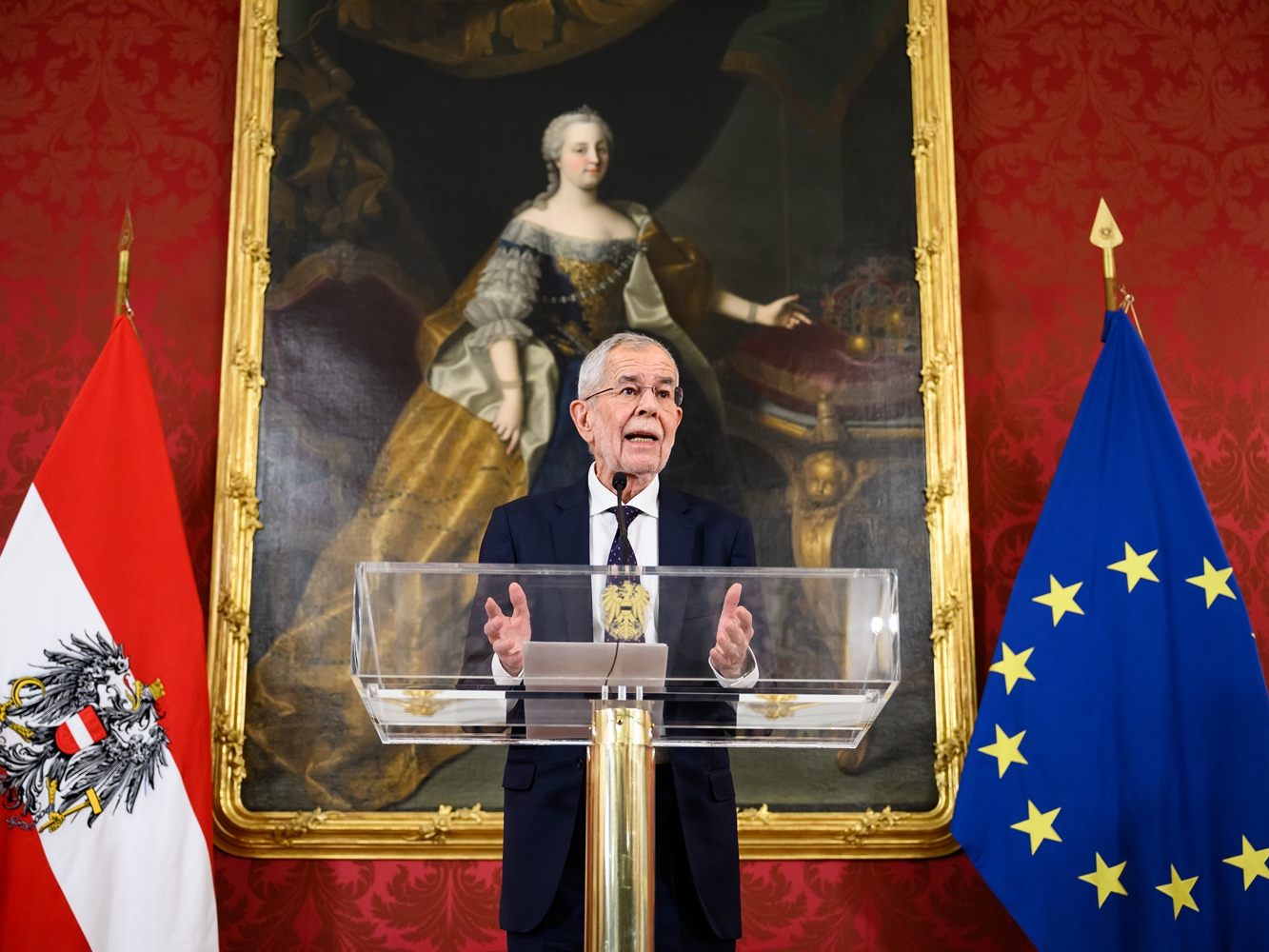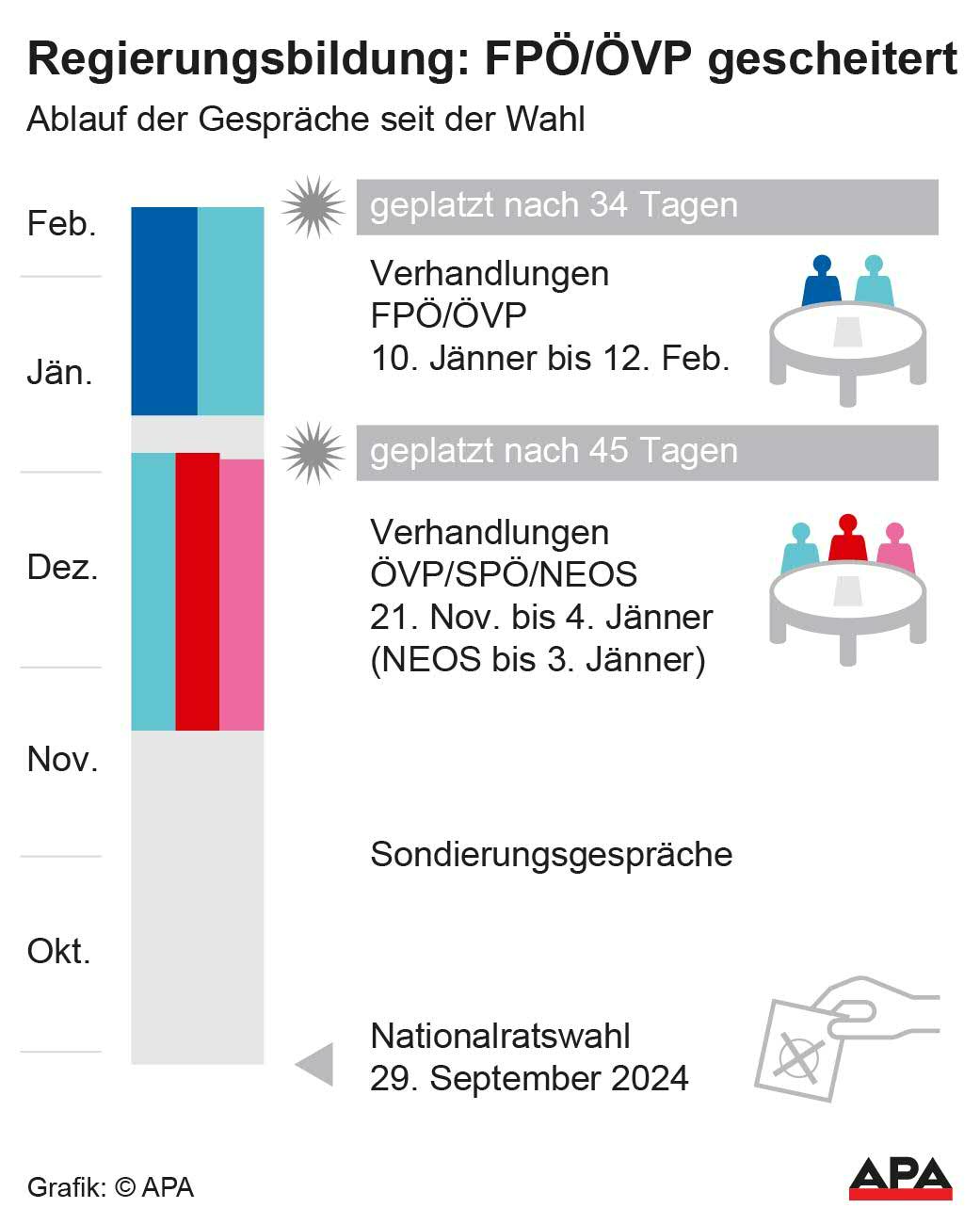Van der Bellen Announced This After Failed Coalition Negotiations

Federal President Alexander Van der Bellen wants to explore further possibilities to form a government after the failed coalition negotiations between FPÖ and ÖVP. For this reason, he will hold talks with "politicians" - presumably the party leaders - in the coming days to discuss what a future government should look like, he said in a statement at the Hofburg on Wednesday evening. He did not show any preferences.
Van der Bellen Mentioned Options
Van der Bellen mentioned four options that are now possible after the failure of the second round of coalition talks: A new election of the National Council, a minority government tolerated by the parliament, an expert government for a certain period, or possibly still a coalition of several parties. "How this government is composed is fundamentally of no importance to me," the Federal President emphasized.

In his brief statement of barely ten minutes at the presidential office, after which no journalist questions were allowed, Van der Bellen made a plea for finding compromises. These have fallen into disrepute, and the political landscape is increasingly polarizing not only in Austria.
The Federal President regretted this, as liberal democracy thrives on it: "Compromise in Austria is a treasure, a cultural asset that has always served us well." It is about a constructive path into the common future and the state as a whole. "A negotiation process is not a competition where there are only winners and losers," he advised the party representatives.
End of Coalition Negotiations
Previously, FPÖ leader Herbert Kickl had returned the mandate to form a government, which he had received from Van der Bellen. This also caused the collapse of the blue-black coalition negotiations. This was preceded by a final personal meeting with VP leader Christian Stocker. Kickl blamed the ÖVP for the failure, as they had made many concessions. The People's Party saw a "power frenzy" of the FPÖ leader.
As Kickl himself announced at a press conference during prime time on Wednesday evening, he recommended to the head of state to quickly initiate new elections. He is convinced that clear conditions are needed as soon as possible instead of a deadlock.
Mutual Accusations
The blame for the failure of the negotiations was naturally seen by the Freedom Party and the People's Party in each other. Kickl held the ÖVP responsible for the failure, as they had made many concessions. The FPÖ wanted to implement its central campaign points in the areas of security and asylum and therefore wanted to lead the Ministry of Finance and the Ministry of the Interior. "That could not have been a surprise to anyone."
The ÖVP, on the other hand, insisted on these two departments as well as the Ministry of Economy, Agriculture, and Foreign Affairs as "non-negotiable," according to Kickl. Even here, compromises were offered, such as an independent expert for the intelligence services. In the end, these differences were insurmountable. "I have to ensure that the FPÖ does not give up the core brand for which it was elected," said the FPÖ leader. "I cannot do that, otherwise I would be Alfred Gusenbauer or Werner Faymann (former SPÖ chancellors, note).
The approach of first negotiating the departments and then the content came from the ÖVP, emphasized Kickl. He himself would have preferred to do it the other way around or at least negotiate in parallel - even here, concessions were made to the ÖVP. Personally, he did not want to blame Stocker: The talks were conducted properly, and there were no heated arguments. But obviously, there is not one ÖVP, but several.
Live Blog After Negotiation Breakdown
(APA/Red)
This article has been automatically translated, read the original article here.





